What good is a swamp to the modern homesteader? Don’t be too quick to pass it by as an unusable place. It just might end up being the most interesting corner of your domain!
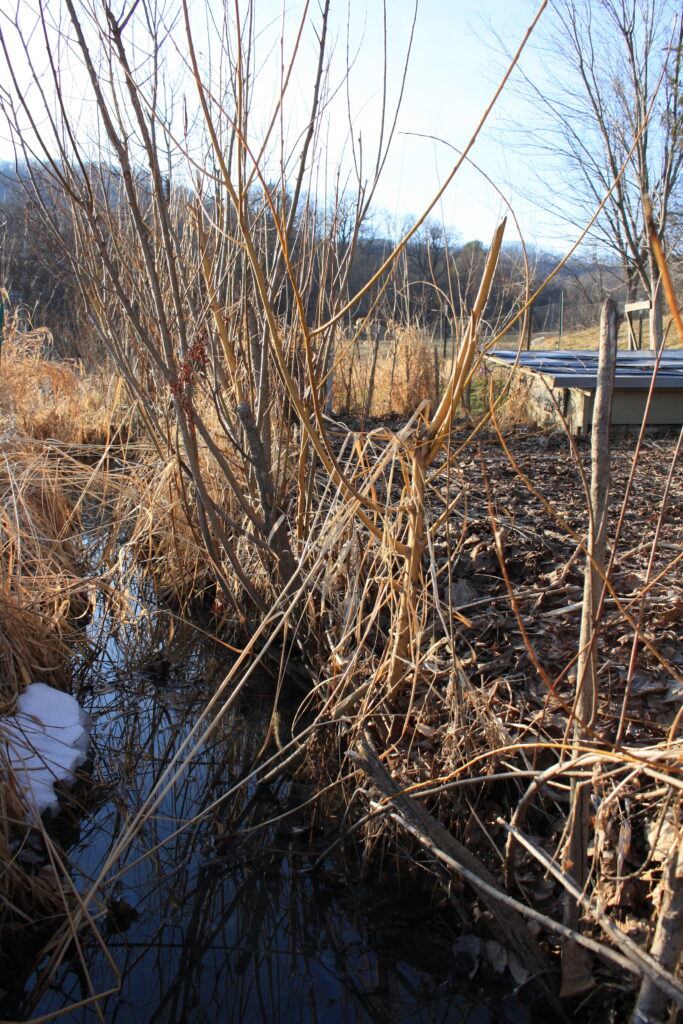
A swamp is any low-lying land where the ground water is exposed. It can have open water or soggy mud, with an abundance of water-loving flora such as reeds, rushes, cattails and willows. A swamp is a symbol for the Wild aspect of Nature. And there is value to that aspect for sure. Mankind needs elements of the wild outdoors, especially amidst our overly manipulated and manicured modern society. Nevertheless, the question remains: if you want to start cultivating your land, what good is a swamp?
A good portion of our half acre plot of land was 180 square yards of swamp. Instead of writing this off as unusable, my goal has been to build up this soggy area into a diverse and productive part of our homestead. Here is some of what I have done thus far:
Build a Garden
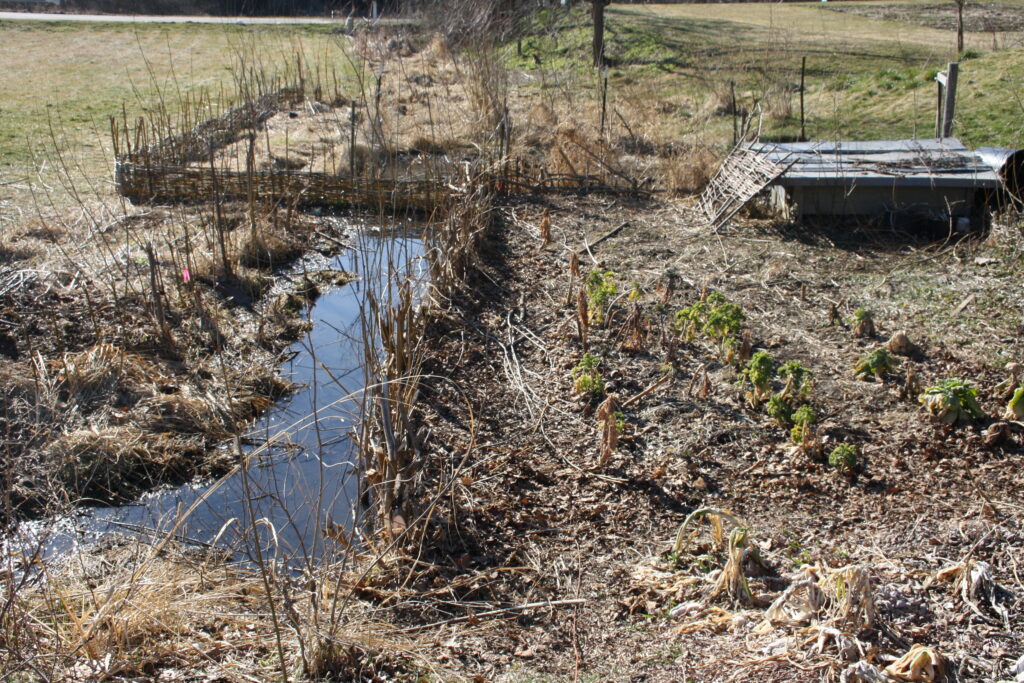
I have written previously about my Swamp Garden project. It has now been a couple years into the project.
Of course, in the event of wet Summer deluges, a drainage ditch or canal is needed so the extra has somewhere to go rather than in your garden. Hey, this is how Holland basically came to be, so why can’t you do it too? All you’re missing now is a pair of wooden clogs!
Water Source
A boggy, low-lying piece of land can be useful in the hot times of the year. This can be your reservoir for watering your garden. Dredge out a deeper hole in the swamp where you can fill your watering can or place a pump.
Ducks
Even if you have a tiny homestead, chances are that you have enough room for some poultry. And if you have a swamp–why not have ducks? The wetter it is, the happier they are for it! Duck meat and eggs are well worth the relatively low effort. Plus, the ducks love eating whatever slugs that may come to plague your garden.
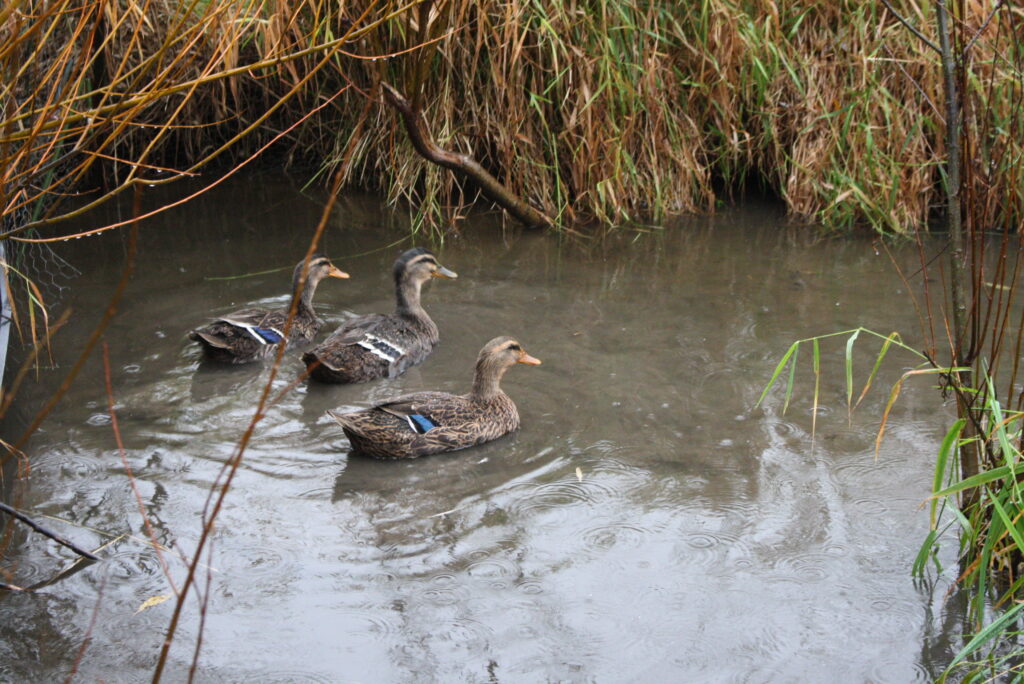
Use Swamp-muck for fertilizer!
Keeping your garden soil well-fertilized is essential. On farms with livestock, the manure is spread on the fields. Well great, but I don’t have enough land for large livestock. So then what? I suppose I could cart in manure from a farm. Or I could spend hard-earned cash buying fertilizer. However, all this time the faithful swamp has been quietly digesting organic matter and turning it into a fertile muck. Along with the decomposing plant material, the water is full of the nitrogen-rich manure from the ducks.
Manure from poultry generally needs to be composted before applying to garden soil. So I started this rotation: I form a pile comprised of alternating layers of swamp muck and dead leaves. A broad-hoe works best for dredging out this muck.
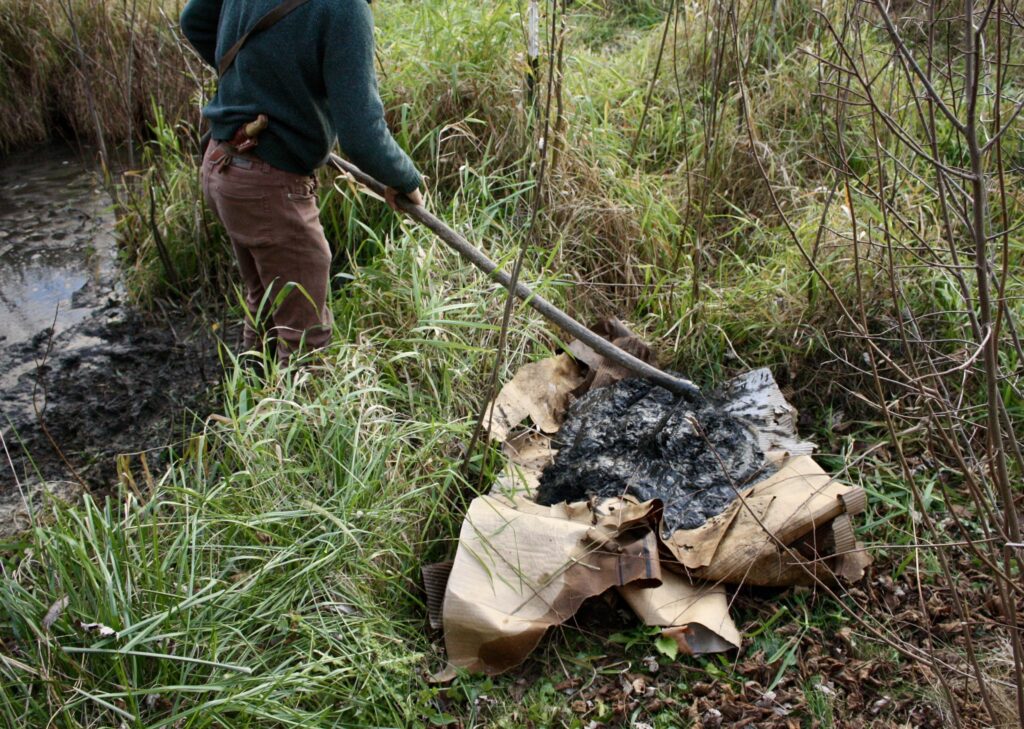
I plan to let it sit for a year and then applying it to the garden. In the interim, I will have already started my next swamp-muck pile. This a new project, so I’ll let you know how it goes!
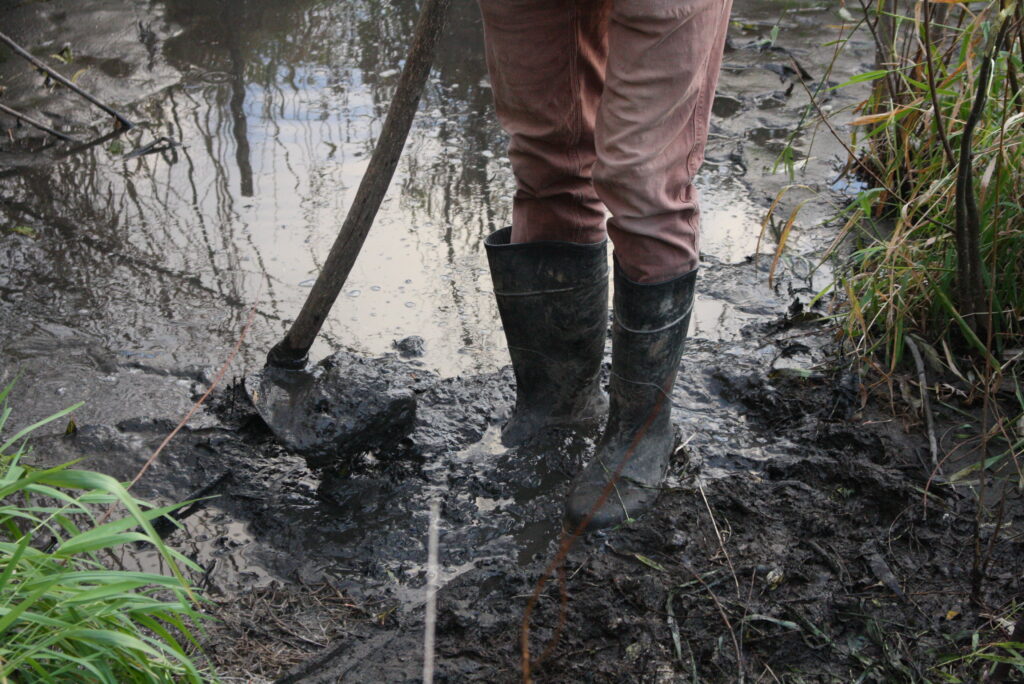
Producing Wood in a Swamp
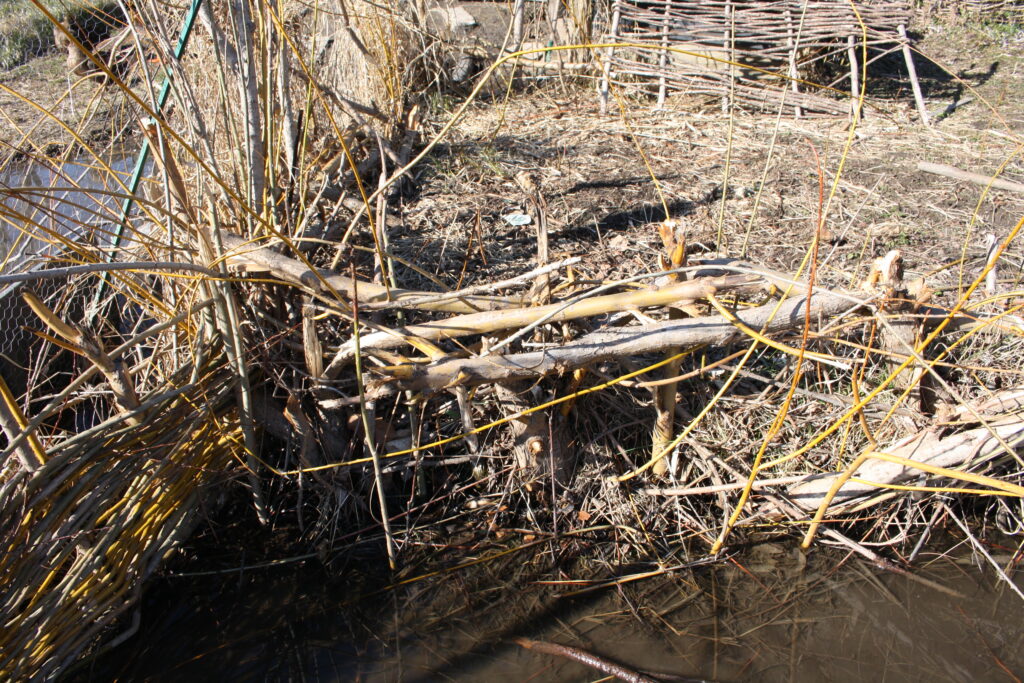
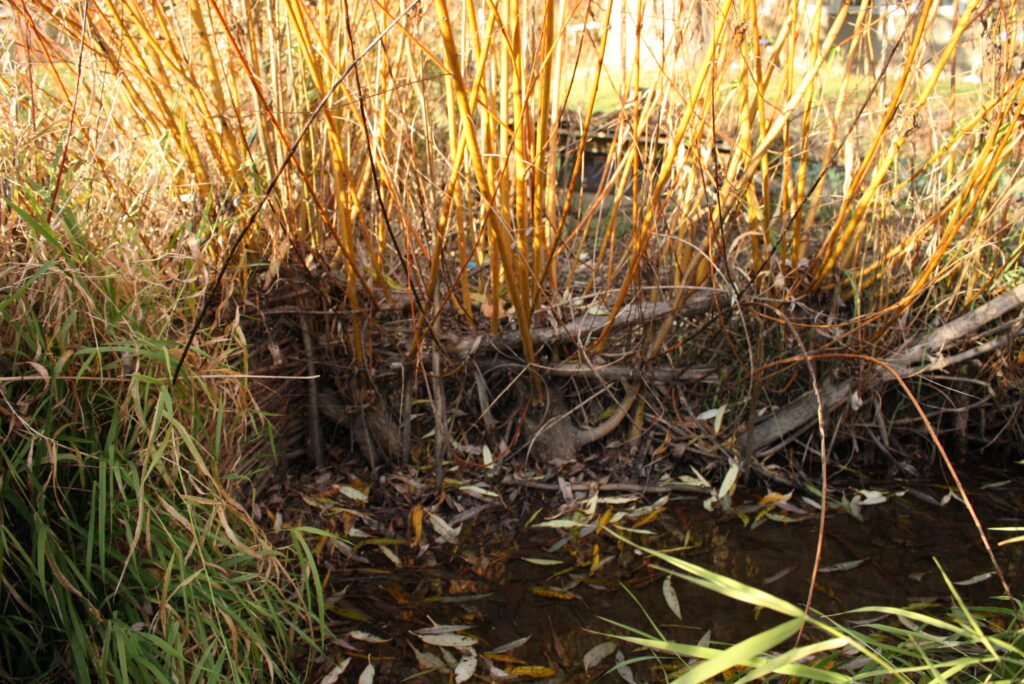
I am a few years into this experiment:
I transplanted willows from cuttings into my previously wood-less swamp. Willows are water-loving and fast-growing. They veritably transformed the swamp into a new landscape.
Well, this new type of landscape actually has a name. And I am going to tell you what it is! It’s called a coppice. You can read more in-depth about that in this previous article.
This new resource has provided me with an abundance of material for basket-making and wattle fence building. I cut the long willow wands (called withes) in the dormant part of the year in late Winter. Because willow is a regenerating wood, it will quickly grow new shoots. These, in turn, will be ready for use the next year. This was, after all the most basic building material of our ancestors for millenia.
A Possible Small-Scale Firewood Source?
I have been wondering about the values of willow as a firewood source. True, it is a softer wood with not as much BTU value as harder woods such as oak, ash or maple. However, I wonder that, if the right context, willow would serve well for firewood. An example perhaps may be a thermal mass heater, such as a bread oven. But, we shall see…
Years ago, I would never have known how useful a swamp could have been. Now I consider myself quite blessed to have one.
~ Nathanael


Leave a Reply